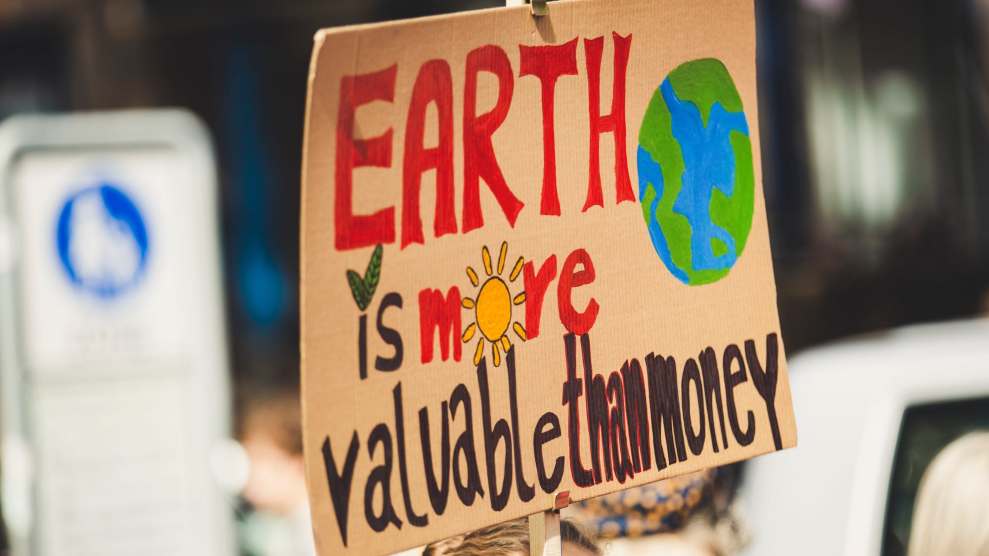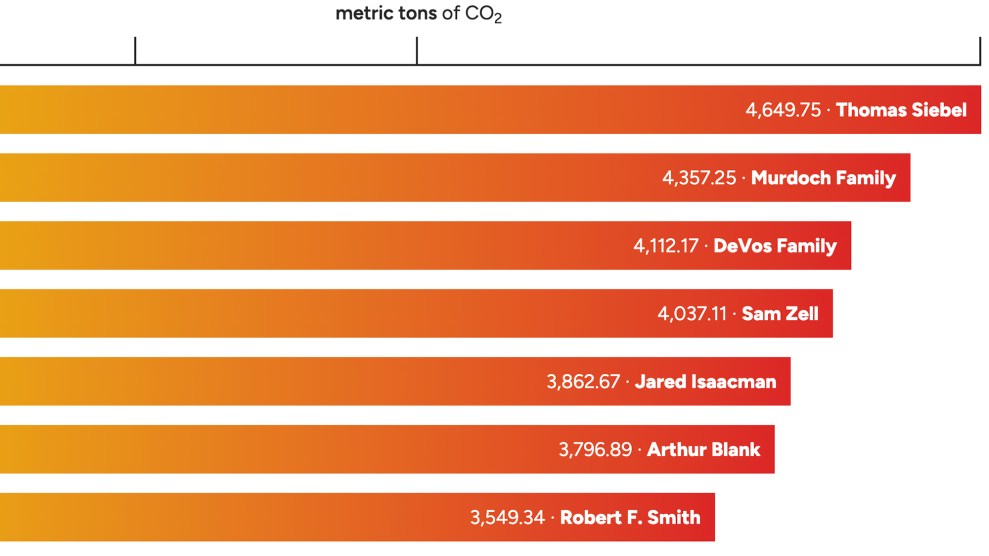
Markus Spiske/Pexels
This story was originally published by the Guardian and is reproduced here as part of the Climate Desk collaboration.
The richest one percent of humanity is responsible for more carbon emissions than the poorest 66 percent, with dire consequences for vulnerable communities and global efforts to tackle the climate emergency, a report says.
The most comprehensive study of global climate inequality ever undertaken shows that this elite group, made up of 77 million people including billionaires, millionaires and those paid more than $140,000 a year, accounted for 16 percent of all CO2 emissions in 2019—enough to cause more than a million excess deaths due to heat, according to the report.
For the past six months, the Guardian has worked with Oxfam, the Stockholm Environment Institute and other experts on an exclusive basis to produce a special investigation, The Great Carbon Divide. It explores the causes and consequences of carbon inequality and the disproportionate impact of super-rich individuals, who have been termed “the polluter elite.” Climate justice will be high on the agenda of this month’s UN Cop28 climate summit in the United Arab Emirates.
The Oxfam report shows that while the wealthiest one percent tend to live climate-insulated, air-conditioned lives, their emissions—5.9 billion of tons of CO2 in 2019—are responsible for immense suffering.
Using a “mortality cost” formula—used by the US Environmental Protection Agency, among others—of 226 excess deaths worldwide for every million tons of carbon, the report calculates that the emissions from the one percent alone would be enough to cause the heat-related deaths of 1.3 million people over the coming decades.
Over the period from 1990 to 2019, the accumulated emissions of the one percent were equivalent to wiping out last year’s harvests of EU corn, US wheat, Bangladeshi rice and Chinese soya beans.
The suffering falls disproportionately upon people living in poverty, marginalized ethnic communities, migrants and women and girls, who live and work outside or in homes vulnerable to extreme weather, according to the research. These groups are less likely to have savings, insurance or social protection, which leaves them more economically, as well as physically, at risk from floods, drought, heatwaves and forest fires. The UN says developing countries account for 91 percent of deaths related to extreme weather.
The report finds that it would take about 1,500 years for someone in the bottom 99 percent to produce as much carbon as the richest billionaires do in a year.
“The super-rich are plundering and polluting the planet to the point of destruction and it is those who can least afford it who are paying the highest price,” said Chiara Liguori, Oxfam’s senior climate justice policy adviser. The twin crises of climate and inequality were “fueling one another,” she said.
The wealth gap between nations only partly explains the disparity. The report shows that in 2019—the most recent year for which there is comprehensive data—high-income countries (mostly in the global north) were responsible for 40 percent of global consumption-based CO2 emissions, while the contribution from low-income countries (mostly in the global south) was a negligible 0.4 percent. Africa, which is home to about one in six of the world population, was responsible for just 4 percent of emissions.
A less discussed but faster-growing problem is inequality within countries. Billionaires are still overwhelmingly white, male and based in the US and Europe, but members of this influential class of super-rich can increasingly be found in other parts of the world. Millionaires are even more dispersed.
The report says this is bad news for the climate on multiple levels. The extravagant carbon footprint of the 0.1 percent—from superyachts, private jets and mansions to space flights and doomsday bunkers—is 77 times higher than the upper level needed for global warming to peak at 1.5C.
The corporate shares of many super-rich are highly polluting. This elite also wield enormous and growing political power by owning media organizations and social networks, hiring advertising and PR agencies and lobbyists, and mixing socially with senior politicians, who are also often members of the richest 1 percent, according to the report.
In the US, for example, one in four members of Congress reportedly own stocks in fossil fuel companies, worth a total of between $33 million and $93 million. The report says this helps to explain why global emissions continue to rise, and why governments in the global north provided $1.8 trillion to subsidize the fossil fuel industry in 2020, contrary to their international pledges to phase out carbon emissions.
Oxfam is calling for hefty wealth taxes on the super-rich and windfall taxes on fossil fuel companies to support the worst affected, reduce inequality and fund a transition to renewable energy. It says a 60 percent tax on the incomes of the wealthiest 1 percent would raise $6.4 trillion a year and could cut emissions by 695 million tons, which is more than the 2019 footprint of the UK.
Oxfam International’s interim executive director, Amitabh Behar, said: “Not taxing wealth allows the richest to rob from us, ruin our planet and renege on democracy. Taxing extreme wealth transforms our chances to tackle both inequality and the climate crisis. These are trillions of dollars at stake to invest in dynamic 21st-century green governments, but also to re-inject into our democracies.”















